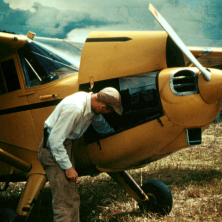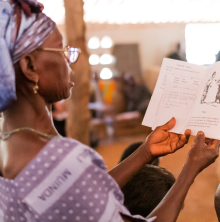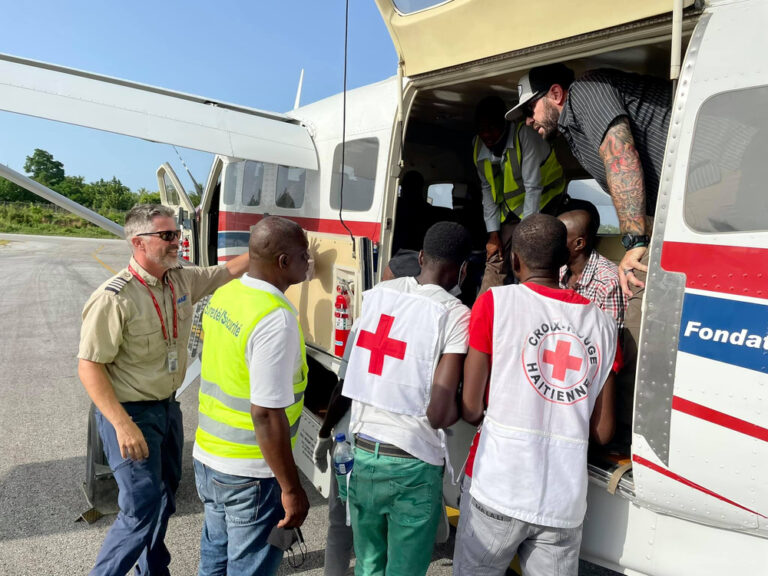Looking back over the history of MAF, what stands out to you as the ministry celebrates its 80th anniversary?
I’m grateful to be part of an organization that I think has done a really good job of staying true to its roots, its spiritual foundation of why we do what we do. We continue to be about aviation, which makes our ministry unique and allows us to serve other organizations in their work and help spread the love of Jesus.
What is the biggest change you have seen at MAF since you started in 2000?
It is noticeable that fewer western missionaries are going overseas. Local churches in the countries where we serve are stepping up and reaching out to their own isolated people, and we have formed many partnerships to help them do that. It is exciting to see their desire to share the gospel in the farthest reaches of their country. We’ve also seen the complexity of aviation regulations sharply rise in the countries where we serve.
Are there opportunities for MAF to expand into new countries?
We are always on the lookout for new ministry opportunities and remaining open to God’s leading. There is a mission hospital in Nigeria that would like us to serve there, and we have had some visits with the civil aviation authority in the country. They are very interested in having MAF start a commercial service there. It is a long process but we are planning to serve in Nigeria in the future.
With the changing regulatory environment, we’ve also had some smaller aviation ministries reach out to see if MAF might be interested in taking on their work. That would potentially bring us into other countries and it is something we are looking into. We have faith that if God wants us in these places, He will open doors for us.
What are some of the challenges MAF is facing today?
One of the challenges we face is the growing regulatory complexities. When I landed in Kalimantan about 25 years ago and started operating as a pilot, we hardly talked about regulatory issues. They were there, but they were pretty basic. That started to change as the information age allowed developing countries to have more of a global perspective.
Now the challenge is countries—like Haiti for example—want to regulate how we operate, but they don’t necessarily have the underlying framework to do so. This creates lengthier timeframes to either bring in a new airplane or change some aspects of our operations. There is certainly a spiritual calling of why we do what we do. These regulatory changes often make others without a similar calling just walk away from doing it. But we seek to persevere.
What does the future look like for continuing the use of airplanes?
Aviation will continue to be our ministry platform. It’s a unique platform, but aviation is also an industry and it is ubiquitous—found everywhere. While it is not a typical ministry platform, serving people with an airplane truly benefits them. It has opened doors for us to serve in places a normal ministry could not go into.
The airplanes we use now are bigger and utilize more sophisticated equipment. We mostly operate turbine engines instead of piston engines due to fuel availability and cost. We do keep an eye on the development of alternative fuels and UAVs—unmanned aerial vehicles. Nothing is imminent as far as their use, but we are always asking ourselves, “Are we still flying the right equipment for the environment that we are in?” Not being prepared for change could be an existential threat to our ministry work.
Helicopters—it’s a question we keep in front of us as we look at opportunities. MAF used them in the past, but they are more expensive to operate and complex to maintain and not as efficient as fixed-wing aircraft. But you can get into places with a helicopter that you will never be able to with an airplane.
Whatever the changes might be, I want the generations who come after us to be thankful for the work that we are striving hard to get right and to see that we were dependent on the Lord and sought His leading.

Story appeared in the May 2025 FlightWatch issue. Read the entire issue here:


